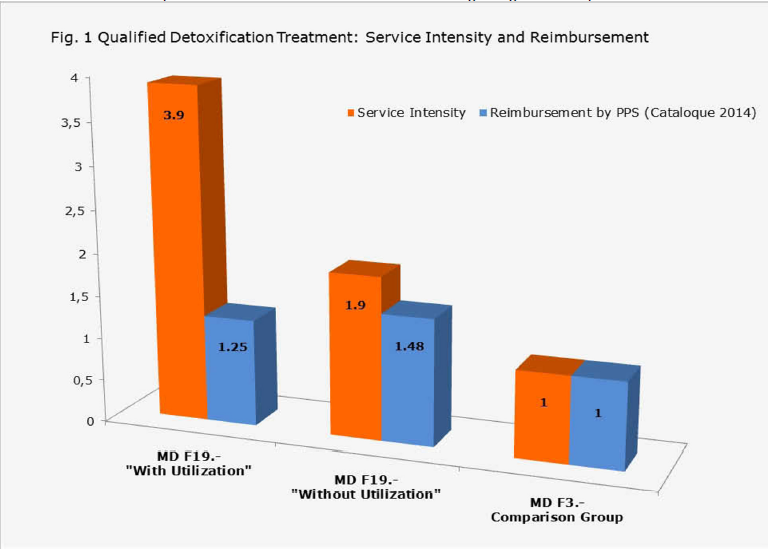Published online by Cambridge University Press: 15 April 2020
In the context of the 2009 Hospital Financing Reform Act (KHRG) in Germany the implementing of a Prospective Payment System (PPS) for psychiatric and psychosomatic facilities was determined. The PPS is based on per diem payments adjusted for diagnoses, patient characteristics and procedures and is controversially discussed.
The psychiatric department of Klinikum Chemnitz gGmbH has been participating in the optional and budget-neutral phase of implementation of PPS since 2013.
Against the background of increasing number of inpatients with main diagnosis (MD) F19.-[ICD10], quality and reimbursement of the treatment of this patient group under PPS conditions were analyzed.
Patient groups with MD F19.-'With Utilization' and 'Without Utilization' of qualified detoxification treatment in 2013 were retrospectively compared by focusing on the criteria 'Quality '(service intensity, ratio of therapeutic services, ratio of discharges against medical advice, length of stay) and 'Reimbursement by PPS'(catalogue 2014). Service intensity and reimbursement by PPS were illustrated by valuation ratios in relation to patient group with MD F3.-(value 1).
Utilization of qualified detoxification treatment was associated with higher service intensity, a higher ratio of therapeutic services and a lower ratio of discharge against medical advice while reimbursement by PPS was lower (fig.1).
The high quality of qualified detoxification treatment is insufficiently reimbursed by PPS in 2014. This is among other reasons a consequence of the inbuilt payment degression relating to length of stay. Although the PPS cataloque in 2015 includes several improvements further discussion and research regarding PPS is required.

Comments
No Comments have been published for this article.